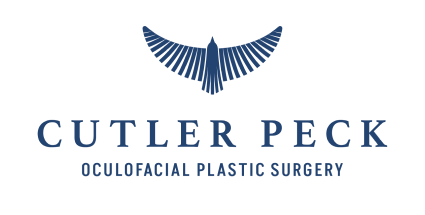Facial Paralysis
Patients may experience facial paralysis due to a range of causes, but the impact it has on their lives should not be underestimated. Dr. Peck proudly works with myriad cases of facial paralysis in Idaho Falls, providing expert case analysis that can help patients regain a sense of control over their lives. If you have experienced facial paralysis and want to discover a path forward, you can call our office to set up a consultation and explore your treatment options with Dr. Peck.
What Is Facial Paralysis and What Causes It?
- Bell Palsy: A sudden and temporary weakness or paralysis of the facial muscles, often due to a viral infection.
- Stroke: A loss of blood flow to the brain that can damage facial nerves.
- Head Trauma: An injury to the head or face that impacts facial nerves.
- Tumors: The growth of tumors near facial nerves can put pressure on or damage the nerves.

How Is Facial Paralysis Treated?
- Steroids: Used for inflammatory causes to reduce nerve swelling.
- Antivirals: Used for viral causes like Bell palsy to reduce nerve inflammation.
- Physical Therapy: Facial exercises and massage techniques to stimulate nerve growth.
- Surgery: Used for permanent damage to repair or reconstruct facial nerves or muscles.
"IT'S NOT THE HAVING, IT'S THE GETTING."
Dr. Cutler Peck is a double board-certified plastic surgeon focused on Oculofacial
Plastic and Reconstructive Surgery.

What Is Facial Paralysis Surgery Like?
Non-surgical treatments such as steroids and physical therapy tend to be gradual and mild. But they can provide excellent results in some situations, depending on the cause and extent of facial paralysis. Dr. Peck specializes in working with patients to find their ideal solution. In some cases, surgical repair and reconstruction of facial nerves is the ideal solution for patients experiencing several types of facial paralysis.
Dr. Peck can provide a comprehensive consultation and referrals when surgical repair is needed. The procedure duration is usually a couple of hours, depending on the complexity of the reconstruction and repair needed. However, anesthesia will be used to ensure you can remain comfortable for the entire surgery. After the procedure, patients can typically return home the same day with someone to drive them.
Is There a Recovery Period?
Recovery from facial paralysis surgery will vary based on the specific approach, the patient’s health, and other factors. Non-surgical options may show improvement within a few weeks, while surgical procedures typically require several weeks of recovery as nerves and muscles heal and regain function. Every path of recovery has variation. Dr. Peck is continually ready to provide additional support for patients to ensure you reach the far side of it with results that matter. After a treatment, you will always receive comprehensive follow-up care to monitor your progress and ensure you achieve the best results possible.

What Are the Results?
For many patients, facial paralysis surgery allows them to regain a sense of control over their lives, restoring confidence and self-esteem. Our facial appearance means a lot to us, and even mild or temporary paralysis can be a highly challenging experience. With each procedure, the goal is to restore as much facial mobility as possible. However, each patient’s situation is unique. Before your procedure, your surgeon will provide you with an outline of the results you should be able to expect from the procedure. She has an experience view of what is and is not possible with surgery, and will apply it to evaluating your case.
But the end goal is always to bring back facial function. That is why Dr. Peck continues to stay at the forefront of oculofacial surgery, so she can provide patients with the best possible care.
Can Facial Paralysis Come Back?
While surgical procedures are designed to be a long-term solution, non-surgical and surgical approaches alike cannot guarantee that facial paralysis will not recur or worsen over time. However, Dr. Peck’s dedication to your long-term well-being means we will work closely with you to monitor your progress and watch for any changes so that we can provide the necessary care to manage your condition and maintain your results. Life can always send the unexpected, but with the right medical care, you can reduce your risk and receive timely treatment when needed.
